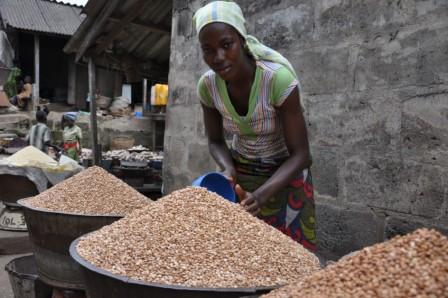Improve cowpea productivity for marginal environments in Africa
This project's main objective is to advance modern breeding by applying tools and knowledge for the optimisation of marker-assisted recurrent selection (MARS) and marker-assisted backcrossing (MABC) for sub-Saharan Africa (SSA) traits and environments. The project will employ molecular breeding to develop lines and varieties with drought tolerance and biotic stress resistances identified from the analysis of elite × elite breeding populations. –
Cowpeas are cultivated on more than 8 million hectares in Central and West Africa. They are the most important grain legume crop in SSA, grown by more farmers on more farmlands (more than 12 million ha) than any other grain legume. It is mostly grown in the hot drought-prone savannas and very arid Sahelian agroecologies, often intercropped with pearl millet and sorghum.
Cowpeas are a key component in sustaining livelihoods of not only millions of farmers (the majority of whom are women), but also of hundreds of thousands of traders and local food processors. Cowpeas provide not only protein-rich grain that complements staple cereal and starchy tuber crops, but also provide fodder for livestock, soil improvement benefits through nitrogen fixation, and household benefits from both cash and income diversity. Cowpea ‘on-farm’ grain yields in SSA reach only 10–30 percent of their biological yield potential, due primarily to insect and disease attacks and to drought.
Improved varieties are urgently needed that will help to reduce this yield gap, taking into account existing production systems and that inputs will remain beyond the reach of resource-poor farmers.
| Target countries: | Burkina Faso, Mozambique, Senegal |
| Lead institute: | University of California-Riverside (USA) |
| Partners: |
|
Additional partner: International Institute of Tropical Agriculture (IITA)


